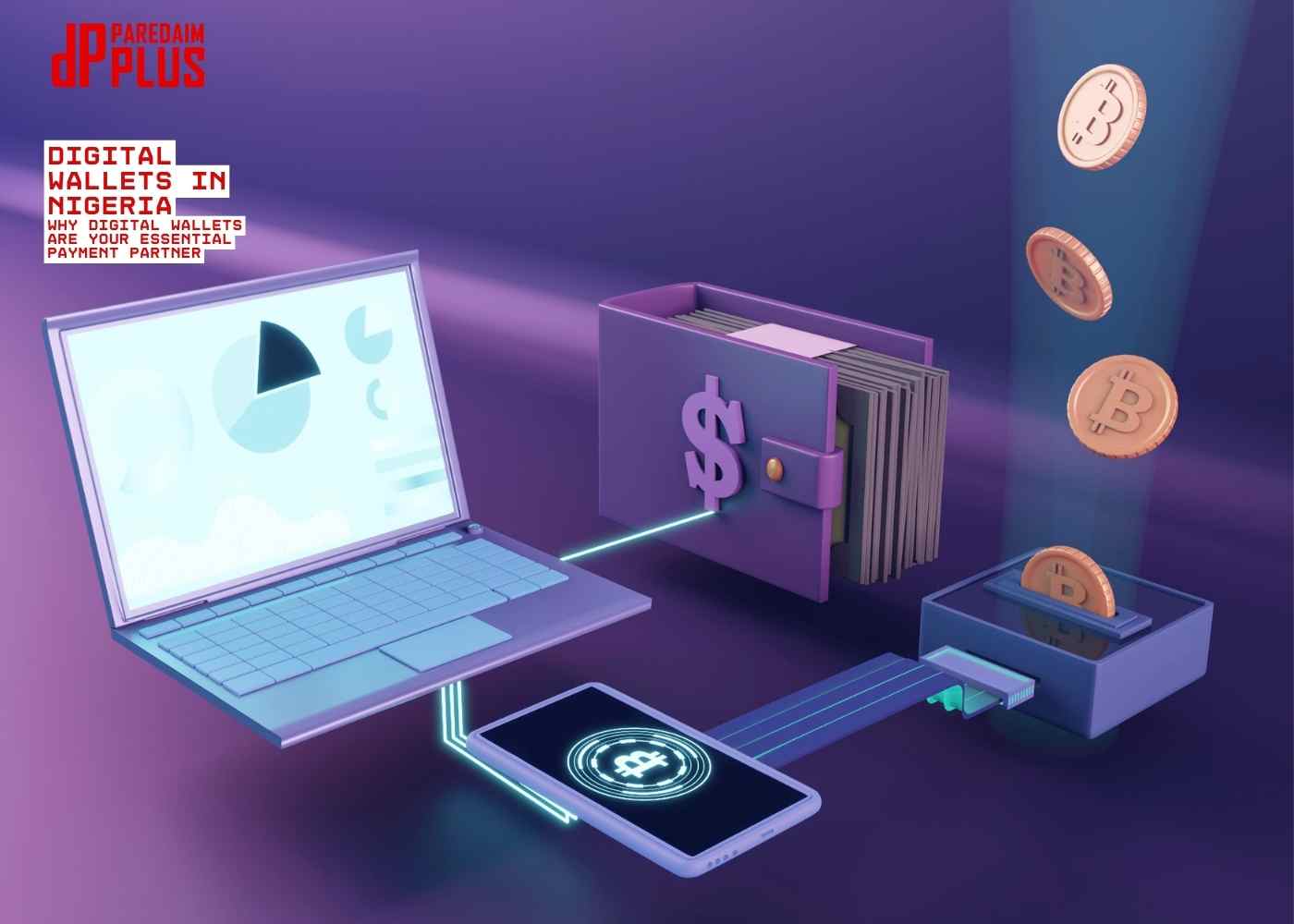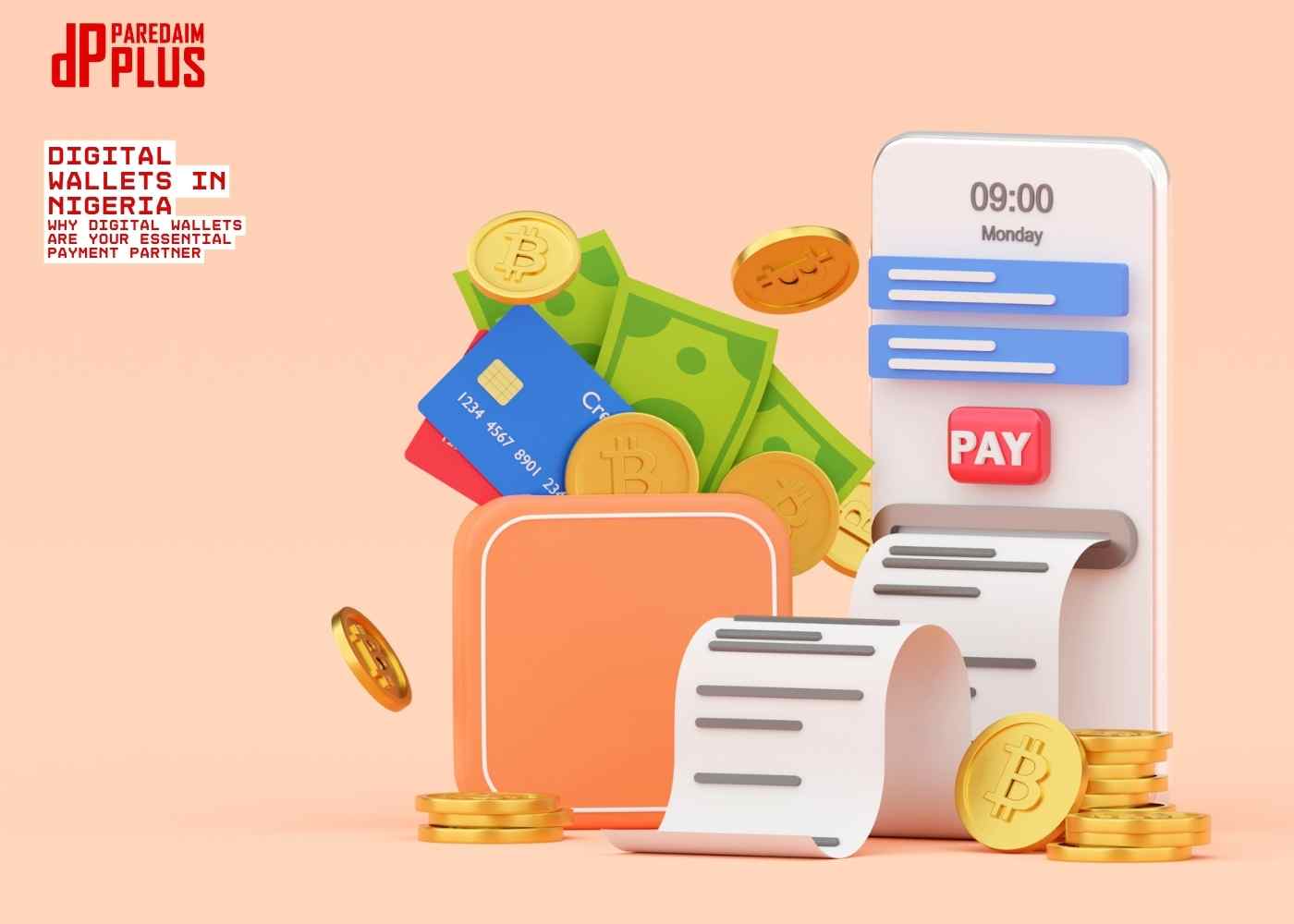
A considerable change is being experienced in the financial landscape in Nigeria. The predominance of purchases made with cash in the past will soon give way to an extensive adoption of the Digital Payment Solution facilitated by innovation in the financial technology sector and the increasing popularity of mobile money solutions. The core of this transformation is digital wallets, as it is a revolutionary technology that will transform the way Nigerians transact. Whether it is retail shopping or bill payments, or even peer-to-peer transfer, the role played by digital wallets in Nigeria is ahead of the nation in becoming a cashless economy.
With the further development of mobile payment systems, the fintech revolution of Nigeria is becoming an immensely captivating phenomenon in the field of African technologies. The National Bureau of Statistics (NBS) has indicated that a majority of payment transactions in Nigeria, up to 62 per cent, were made using mobile payment as of 2023, which is a rising trend of preference for digital payment methods over traditional banking. Through this change, the use of digital wallets is no longer a trend but has also become an essential component of the digital financial system in Nigeria.
This article will discuss the way digital wallets are transforming the payment system in Nigeria and contributing to the fintech revolution in Nigeria, and why the system is vital to the development of safe payments in Nigeria.

The Emergence of Digital Wallets in Nigeria
Digital wallets have become one of the most popular digital payment tools in Nigeria, which allow people to use convenient, fast, and safe payment methods instead of traditional banking activities. These wallets enable consumers to keep their money in an electronic form and retrieve it with the help of the mobile applications, which allows finding it easier to send and receive money, pay bills, and do online shopping. One of the main driving reasons behind their success is convenience, especially for the Nigerian citizen, where a large part of it is unbanked or underbanked.
Nigeria has been witnessing a fast-growing mobile money industry in the country, especially with the younger, technology-savvy generation. The Central Bank of Nigeria (CBN) revealed the current development based on the growing demand for using mobile payments in Nigeria: mobile money transactions increased by more than 150 per cent during 2021-2022. The use of digital wallets also shows tremendous growth and allows people to make numerous transactions with the help of a single smartphone.

Nigeria’s Fintech Revolution and the Role of Digital Wallets
The fintech ecosystem of Nigeria is one of the most dynamic in Africa, and it includes a plethora of fintech startups, as well as incumbent financial institutions that provide digital wallet services. The impact of fintech is that innovation in Nigeria has been very important in Nigeria's mobile payments leapfrogging. Organizations such as Paystack, Flutterwave and Paga have transformed the Nigerian interaction with financial services, helping to make payments, loans and investments more readily available.
Digital wallets have made businesses as well as consumers stronger and modernized Nigerian e-commerce payments to be more efficient, faster and secure. In a state where mobile phone penetration is increasing, presently, there are more than 190 million users of mobile phones. Digital wallets are the best alternatives you should use to address the inconsistency between traditional banking and real-time transactions.

Key Benefits of Digital Wallets in Nigeria
1. Convenience and Accessibility
Convenience is one of the principal aspects that prompted the increased popularity of digital wallets in Nigeria. Having a digital wallet means that users do not carry cash or even bank cards to make payments anymore. Their mobile devices require a simple tap and are sufficient to make payments, either to purchase something on an e-commerce shop or give money to friends and relatives.
This has been the game-changer in Nigerian e-commerce payments. Perhaps due to the exposure of online shopping, some form of digital wallet has come into play as more Nigerians have found it easy to shop online, therefore spending money and paying online to purchase products and services deemed to be available online.
2. Speed of Transactions
The speed at which the payment can be done is very important in Nigeria, particularly in the business and consumer world, where fast urban living leads. Digital wallets have the benefit of quick transactions, which saves a lot of time compared to the use of traditional bank services for transfers. The mobile money services have seriously shortened the time required for payment delays, leading to faster payment of business, and this is very essential in respect to enhancing the cash flow and in helping the economy to move forward.

3. Enhanced Security Features
Security of digital wallets is an issue of concern to fintech providers in Nigeria. In contrast to cash, which is also easy to lose and be stolen, digital wallets are offered with the ultimate security capacities, like encryption, two-factor authentication (2-FA) and biometrics (fingerprint or facial recognition) to experience safe payments. This renders them much safer as compared to traditional banking, where fraud and theft are prone to occur, particularly in a maturing cashless economy in Nigeria.
With the implementation of blockchain payments in Nigeria, the safety of the digital wallets has also been enhanced, as the clients are provided with a way to protect themselves and any potential losses. With the help of Blockchain technology, transactions are securely written on decentralized ledgers, and it is almost impossible to manipulate a record of payment by malicious actors.
4. Financial Inclusion
The second significant opportunity for digital wallet adoption is the promotion of financial inclusion. A large part of the Nigerian population is still nowhere near the services of traditional banking because of such factors as geographical obstacles, inappropriate documentation, and not being able to access the physical offices of the bank. Digital wallets help these unbanked and underbanked people get up to financial services via their mobile phones with the help of mobile money in Nigeria.
The digital wallets assist their users in saving, sending and receiving money, as well as purchasing goods and services, enhancing general financial inclusion. This is quite essential, especially in a nation where more than 40 per cent of the residents do not enjoy formal banking facilities.

The Future of Digital Wallets in Nigeria
1. Increasing Digital Wallet Adoption
The future of digital wallets in Nigeria is optimistic, with an increasing individuals choosing mobile payment solutions as they are the most viable option to use when making a transaction. A McKinsey & Company report has forecasted that the number of wallet adoptions will increase by 50 per cent in Nigeria by the year 2025 as more enterprises install the solution in their day-to-day activities.
As the Nigerian government, with the Central Bank of Nigeria, promotes a cashless economy in Nigeria, the digital wallets will continue to experience robust growth. The Cashless Nigeria Policy is one of the initiatives to limit the costs of using physical cash and implement digital transactions. This would increase the expansion of digital payment services in different industries like the retail industry, transport industry and much more.

2. Synergy between Banks and Fintech Companies
The second cause that will promote the growth of digital wallets is the increasing cooperation between conventional banks and fintech companies. The use of digital wallets within digital banking apps is becoming a major feature of formidable Nigerian banks, where people may make payments, send money, and handle their finances with more efficiency.
As opposed to payments through wallets, these arrangements between banks and fintech innovators mean that users experience a smooth transition when they make the switch to using the wallets, vice versa expanding the uptake and transacting of the mobile payments.
Conclusion
The emergence of digital wallets has transformed payments in Nigeria to a greater margin, by introducing greater convenience, speedy transactions, and heightened security. Digital wallets have been on the frontline of a financial revolution that is gearing to transform the way Nigerians relate to money, as the phenomenon is supported by mobile payments in Nigeria, which are driving the Nigerian fintech revolution, and making the country cashless.
The continued growth of the digital wallet system means that mobile payment systems are where the digital economy in Nigeria will always be based. These wallets have become the choice of millions of Nigerians because an increase in the security features alongside ease of use makes these wallets the most desirable. Furthermore, the shine of digital wallets will probably be enhanced by the introduction of blockchain payments in Nigeria and other promising technologies because fintech companies will evolve further.
It is estimated that over the next few years, not only will the usage of digital wallets propel the rise of e-commerce, but it will also enhance the financial inclusion of millions of Nigerians. The future of Nigerian payments is turning digital, and the front-runners are Digital Wallets.






